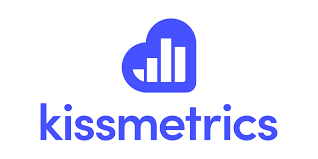In the bustling world of digital marketing, the tools you choose can make or break your strategy. Enter Kissmetrics and Mixpanel, two titans in the realm of marketing analytics, each boasting its own set of features designed to elevate your marketing game. But which one is the right pick for you? Let’s dive deep into a comparison that might just help you decide.
| Kissmetrics | Mixpanel |
|---|---|
 |  |
| G2 Score – 4.1 out of 5 stars | G2 Score – 4.6 out of 5 stars |
| TrustRadius Score – 9.6 out of 10 | TrustRadius Score – 8.4 out of 10 |
Understanding User Engagement
At the core of every successful marketing strategy lies a deep understanding of user engagement. It’s the secret sauce that lets you know if your content resonates with your audience, if your product features are hitting the mark, or if your user interface is as intuitive as you hoped. Both Kissmetrics and Mixpanel offer robust solutions to track and analyze user engagement, but they approach it with slight nuances that could sway your decision depending on your specific needs.
Kissmetrics: Deep Dives into User Behavior
Kissmetrics shines when it comes to providing a granular view of user behavior. It’s like having a microscope that zooms in on the individual paths users take through your website or app. This tool excels in tracking the entire user journey, from the moment they land on your platform to the various interactions that lead to conversion (or lack thereof). It’s particularly adept at segmenting users based on their actions, allowing you to tailor your marketing efforts with precision.
One of the standout features of Kissmetrics is its ability to link data to real users. This means you can track a user’s interactions over multiple sessions, providing invaluable insights into long-term engagement and retention. This user-centric approach makes it easier to identify patterns, such as which features keep users coming back or what might be causing them to churn.
Moreover, Kissmetrics offers powerful automation tools. For instance, you can set up automated email campaigns triggered by specific user behaviors. This enables you to engage with your users in a timely and relevant manner, potentially boosting your conversion rates.
Mixpanel: Real-time Insights and Cohort Analysis
Mixpanel, on the other hand, prides itself on offering real-time data analytics. This immediacy allows you to monitor how changes to your platform impact user behavior as they happen. If you’re someone who loves to iterate quickly, this feature is a goldmine. It enables you to test, learn, and pivot faster than ever before.
Cohort analysis is another area where Mixpanel excels. By grouping users based on shared characteristics or behaviors, Mixpanel helps you understand how different segments engage with your platform over time. This is crucial for identifying which features or content resonate most with your audience. Plus, it’s invaluable for measuring the effectiveness of specific campaigns or changes to your platform.
Mixpanel also offers a flexible event-based tracking system. This means you can customize what actions or events you track to align closely with your unique business goals. Whether it’s a user completing a purchase, sharing content on social media, or upgrading their subscription, Mixpanel lets you define and track these events with ease.
The Verdict on User Engagement
Choosing between Kissmetrics and Mixpanel for user engagement analytics ultimately boils down to what aspects of user behavior are most critical to your business. If you’re looking for in-depth insights into individual user journeys and the ability to link data to real people over time, Kissmetrics might be your best bet. However, if you prioritize real-time data, flexibility in event tracking, and detailed cohort analysis, Mixpanel could be more up your alley.
Engaging with your users in a meaningful way is the cornerstone of digital marketing success. Both Kissmetrics and Mixpanel offer powerful tools to help you understand and improve user engagement. Your choice should align with your specific needs, whether that’s diving deep into individual user behaviors or getting real-time feedback on your latest innovations.
Analyzing Conversion Funnel Performance
The conversion funnel is a vital component of any marketing strategy, illustrating the journey from initial awareness to the final action, be it a purchase, sign-up, or any other desired outcome. Understanding how users move through this funnel, where they drop off, and what encourages them to proceed is crucial for optimizing conversions. Here’s how Kissmetrics and Mixpanel stack up in analyzing conversion funnel performance.
Kissmetrics: Sequential Insight into User Conversions
Kissmetrics takes a sequential approach to funnel analysis, allowing you to visualize the steps users take leading up to a conversion or where they fall off. This step-by-step breakdown is incredibly insightful for identifying friction points in the user journey. For example, if you notice a significant drop-off at the checkout page, you might infer issues with the payment process or perhaps the page’s loading time.
Another powerful feature of Kissmetrics is its ability to backtrack and analyze the actions leading up to a conversion or drop-off. This historical analysis can uncover patterns or behaviors shared by users who convert versus those who don’t, offering actionable insights for targeted optimization efforts. By understanding these nuances, you can tailor your strategies to nudge more users towards conversion.
Moreover, Kissmetrics’ segmentation capabilities shine here as well. You can dissect your funnel data based on various user attributes such as demographics, behavior, or source of acquisition. This level of detail is invaluable for customizing user experiences and marketing messages, potentially increasing your conversion rates by addressing the specific needs and interests of different segments.
Mixpanel: Dynamic and Interactive Funnel Analysis
Mixpanel offers a dynamic approach to funnel analysis, emphasizing flexibility and interactivity. You can easily set up and modify your conversion funnels, adjusting steps and criteria on the fly. This adaptability is particularly useful in fast-paced environments where you need to iterate quickly based on new insights or changing business objectives.
One of the standout features of Mixpanel’s funnel analysis is its ability to analyze funnels in real-time. You can instantly see how changes to your website or app affect user behavior, allowing for rapid testing and optimization. This real-time feedback loop can accelerate the process of identifying and addressing conversion bottlenecks.
Mixpanel also excels in event-based funnel tracking. You can define any action as a step in your funnel, giving you the flexibility to analyze a wide array of conversion paths. Whether it’s a simple e-commerce purchase or a complex series of interactions within a software application, Mixpanel’s customization options ensure that you can tailor your funnel analysis to meet your specific needs.
The Verdict on Conversion Funnel Performance
When it comes to optimizing conversion funnels, both Kissmetrics and Mixpanel offer compelling features. Kissmetrics is your go-to if you value deep, sequential insights into user behavior and the ability to analyze historical data to understand conversion patterns. Its segmentation and backtracking capabilities provide a rich, user-centric view of the conversion process.
On the other hand, Mixpanel’s strength lies in its flexibility, real-time data, and dynamic event-based tracking. If you operate in a fast-paced environment and need to quickly adjust your funnels based on fresh insights, Mixpanel could be more suitable for your needs. Ultimately, the choice between Kissmetrics and Mixpanel for funnel analysis will depend on your specific priorities: whether it’s the depth of historical insight and segmentation or the agility of real-time analysis and event customization.
Integration and Compatibility: Extending Your Marketing Tech Stack
In today’s digital landscape, the ability to integrate with other tools and platforms is not just convenient—it’s essential. A marketing analytics tool should seamlessly fit into your existing tech stack, enhancing your capabilities rather than complicating them. Let’s examine how Kissmetrics and Mixpanel fare when it comes to integration and compatibility.
Kissmetrics: Streamlined Integration with a User-Centric Approach
Kissmetrics offers a range of integrations designed to enhance your marketing efforts and streamline your operations. From email marketing platforms like Mailchimp to payment processors such as Stripe, Kissmetrics connects with a variety of services, allowing you to synchronize your data across platforms effortlessly. This means you can trigger targeted email campaigns based on user behavior or track subscription revenues without leaving the Kissmetrics environment.
What sets Kissmetrics apart in terms of integration is its emphasis on maintaining a continuous user narrative across different platforms. For instance, integrating Kissmetrics with your CRM allows you to enrich customer profiles with behavioral data from your website or app, offering a comprehensive view of each customer’s journey. This level of integration supports a more personalized marketing approach, enhancing customer engagement and conversion rates.
Furthermore, Kissmetrics provides robust API support, enabling custom integrations with your existing tools and systems. This flexibility ensures that you can tailor the integration to fit your specific business needs, making Kissmetrics a versatile addition to your marketing tech stack.
Mixpanel: A Flexible and Scalable Integration Ecosystem
Mixpanel boasts a broad ecosystem of integrations, covering everything from A/B testing tools and CRMs to advertising platforms and data warehousing solutions. This wide range of integrations ensures that Mixpanel can fit into various marketing strategies, enhancing data collection, analysis, and action across multiple channels.
One of the highlights of Mixpanel’s integration capabilities is its adaptability to both small-scale startups and large enterprises. Whether you’re looking to optimize a single aspect of your user experience or orchestrate complex cross-channel campaigns, Mixpanel’s integrations provide the necessary flexibility and scalability.
Moreover, Mixpanel’s integration with data warehousing solutions stands out. It allows you to export your data to a centralized repository, facilitating advanced analysis alongside other business data. This feature is invaluable for businesses that rely on comprehensive data analysis to inform strategic decisions, as it supports a holistic view of your marketing performance and user engagement.
The Verdict on Integration and Compatibility
When it comes to integration and compatibility, both Kissmetrics and Mixpanel offer strong features designed to fit seamlessly into your existing tech stack. Kissmetrics shines with its user-centric approach, enhancing the personalization of marketing efforts through detailed behavioral data integration across platforms. Its API support further adds to its versatility, allowing for custom integrations tailored to specific business needs.
Mixpanel, with its vast ecosystem of integrations, offers remarkable flexibility and scalability, making it a suitable choice for businesses of all sizes. Its standout feature is the ability to integrate with data warehousing solutions, providing a comprehensive data analysis framework that can significantly impact strategic decision-making.
Your choice between Kissmetrics and Mixpanel in terms of integration and compatibility will largely depend on your specific integration needs and how you plan to use behavioral data across your marketing and sales platforms. Whether you prioritize a seamless user narrative or a broad and scalable integration ecosystem, both tools provide robust solutions to extend your marketing tech stack effectively.

Related: Check out our free SEO suite

Pricing and Value for Money: Maximizing Your Marketing Budget
In the realm of digital marketing tools, pricing structures and the value they deliver can vary widely. It’s crucial for businesses to carefully consider not only the cost but also the return on investment (ROI) that a tool can provide. Let’s dive into how Kissmetrics and Mixpanel stack up in terms of pricing and the overall value they offer to businesses.
| Kissmetrics | As of the latest information, Kissmetrics appears to have been absorbed by Neil Patel Digital, and specific pricing for Kissmetrics services is not listed. It’s advisable to contact them directly for details. |
| Mixpanel | Mixpanel provides a Free plan, a Growth plan starting at $25 per month, and an Enterprise plan with custom pricing. |
Kissmetrics: Customized Pricing for Tailored Needs
Kissmetrics adopts a customized pricing model, which means that the cost is tailored to each business’s specific needs. This approach can be advantageous because you’re not paying for features or capacities you don’t need. The pricing is based on factors such as the number of events tracked, the number of users, and the level of support required.
One of the benefits of this customized approach is that it can scale with your business. As your needs grow and evolve, Kissmetrics can adjust your package accordingly, ensuring that you always have the right level of service without overspending. This can be particularly appealing for startups and growing businesses that expect to scale their operations over time.
However, the downside to customized pricing is the lack of transparency. Potential customers may find it challenging to estimate upfront costs without engaging in a conversation with the sales team. This could be a hurdle for smaller businesses or those on a tight budget who prefer to have a clear understanding of costs from the outset.
Mixpanel: Flexible Pricing Plans with Scalability
Mixpanel offers a more transparent pricing structure with different tiers to accommodate businesses of various sizes and needs. From a free tier for startups and small projects to more comprehensive plans for larger enterprises, Mixpanel’s pricing is designed to scale with your business. Each plan comes with a clear list of features, including data points, reports, and access to premium support, making it easier for businesses to choose the most appropriate level of service.
The free tier is a significant advantage for small businesses and startups that are just beginning to explore the potential of analytics in their operations. It allows them to leverage powerful analytics capabilities without a financial commitment, providing room to grow and scale as their needs become more complex.
For larger businesses, Mixpanel’s enterprise plans offer extensive features and customization options, including advanced segmentation, data modeling, and personal support. While these plans come at a higher cost, the value they provide in terms of insights, optimization opportunities, and potential ROI can justify the investment for businesses that rely heavily on data-driven decision-making.
The Verdict on Pricing and Value for Money
When considering the pricing and value for money of Kissmetrics and Mixpanel, it’s essential to evaluate the specific needs and growth trajectory of your business. Kissmetrics’ customized pricing can offer a tailored solution that grows with you, potentially providing a high ROI for businesses with specific needs that match Kissmetrics’ strengths. However, the lack of upfront pricing transparency might be a drawback for some.
On the other hand, Mixpanel’s tiered pricing structure provides clarity and scalability, from a free plan suited for small-scale projects to comprehensive enterprise solutions designed for large-scale data analysis. This flexibility, coupled with the clear delineation of features and capabilities at each level, makes Mixpanel an attractive option for a wide range of businesses.
Ultimately, the choice between Kissmetrics and Mixpanel in terms of pricing and value will depend on your business’s size, growth phase, and how critical advanced analytics capabilities are to your operations. Both platforms offer compelling features, but your decision should align with your financial considerations and the expected ROI from your marketing analytics investment.
Customer Support and Community: Ensuring a Smooth User Experience
High-quality customer support and an active community are essential for navigating the complexities of modern marketing analytics tools. Whether it’s troubleshooting, learning how to use new features, or sharing best practices, the level of support and community engagement can significantly impact your user experience and success with the tool. Let’s see how Kissmetrics and Mixpanel measure up in these crucial areas.
Kissmetrics: Personalized Support and Knowledge Resources
Kissmetrics prides itself on providing personalized customer support. Users can expect dedicated assistance for troubleshooting issues or getting advice on best practices. This personalized touch can be particularly valuable for businesses that rely heavily on their analytics platform and need quick, reliable support to address any issues that arise.
In addition to personalized support, Kissmetrics offers a wealth of knowledge resources, including detailed guides, webinars, and case studies. These resources are designed to help users maximize the value of Kissmetrics, offering insights into effective strategies and tips for leveraging the platform’s capabilities. The focus is on not just solving problems but also educating users on how to optimize their analytics practices.
While Kissmetrics has a strong emphasis on direct support, the platform’s community aspect is less pronounced compared to some of its competitors. This means that while you can expect high-quality, personalized assistance from the Kissmetrics team, opportunities for peer-to-peer learning and community engagement might be more limited.
Mixpanel: Comprehensive Support and a Vibrant Community
Mixpanel offers a comprehensive support system that includes a detailed knowledge base, live chat support, and dedicated account managers for enterprise clients. The knowledge base is extensive, covering everything from basic setup to advanced analysis techniques, making it a valuable resource for both new and experienced users.
What sets Mixpanel apart, however, is its vibrant community. Mixpanel has fostered a strong community of users who share insights, ask questions, and provide support to one another. This peer-to-peer support can be incredibly valuable, offering diverse perspectives and real-world advice on how to tackle various challenges.
Moreover, Mixpanel regularly updates its platform and resources based on community feedback, demonstrating a commitment to continuous improvement and user satisfaction. This dynamic between Mixpanel and its user community not only enhances the user experience but also ensures that the platform evolves in ways that are most beneficial to its users.
The Verdict on Customer Support and Community
Both Kissmetrics and Mixpanel recognize the importance of customer support and provide robust resources to help users make the most of their platforms. Kissmetrics offers personalized support and a rich array of educational resources, making it a great choice for businesses that value direct assistance and in-depth learning materials. However, if you’re looking for a platform with a strong sense of community and peer-to-peer engagement, Mixpanel might be the better choice. Its vibrant user community and responsive feedback loop create an environment where users can continually learn, share, and improve.
In conclusion, the decision between Kissmetrics and Mixpanel in terms of customer support and community should align with your preferences for learning and problem-solving. Whether you prioritize personalized support and educational content or a lively community and collective knowledge, both platforms offer distinct advantages that can enhance your marketing analytics experience.
Data Privacy and Compliance: Navigating the Legal Landscape
In an era where data breaches and privacy concerns are increasingly common, ensuring the security and compliance of marketing analytics tools has never been more critical. Businesses must not only protect their customers’ data but also comply with an ever-growing body of regulations such as GDPR (General Data Protection Regulation), CCPA (California Consumer Privacy Act), and more. Let’s delve into how Kissmetrics and Mixpanel address these vital concerns.
Kissmetrics: Commitment to Data Security and Privacy
Kissmetrics places a high emphasis on data privacy and security, offering features designed to help businesses comply with global regulations. The platform provides tools for managing consent and data deletion requests, making it easier for businesses to adhere to GDPR and other privacy laws. This is crucial for businesses operating in or catering to customers in regions with stringent data protection regulations.
Furthermore, Kissmetrics employs robust security measures to protect data at rest and in transit. Encryption, regular security audits, and compliance certifications are part of their commitment to ensuring that user data is secure and handled responsibly. This focus on security and privacy not only helps businesses protect their customers’ data but also builds trust, which is essential in today’s digital landscape.
However, businesses are encouraged to review Kissmetrics’ specific policies and features to ensure they meet their particular compliance needs, especially as privacy regulations continue to evolve.
Mixpanel: A Proactive Approach to Privacy and Compliance
Mixpanel also takes data privacy and compliance seriously, with a comprehensive set of features and policies designed to safeguard user data. Mixpanel’s compliance with GDPR, CCPA, and other regulations demonstrates its commitment to privacy and data protection. The platform offers tools for data anonymization, consent management, and user data deletion, empowering businesses to comply with privacy laws and regulations.
One of Mixpanel’s standout features is its flexibility in data handling and storage. Businesses have the option to choose where their data is stored, which can be critical for compliance with regional data protection laws. Additionally, Mixpanel’s detailed documentation and support resources provide valuable guidance on navigating privacy regulations, helping businesses implement compliant analytics practices.
Like Kissmetrics, Mixpanel emphasizes the importance of regular security audits and employs encryption and other security measures to protect user data. These efforts underscore Mixpanel’s dedication to maintaining a high standard of data privacy and security.
The Verdict on Data Privacy and Compliance
Both Kissmetrics and Mixpanel demonstrate a strong commitment to data privacy and compliance, offering a range of features and tools designed to help businesses protect user data and navigate the complex landscape of privacy regulations. The choice between the two may come down to specific features or support that align with your business’s unique compliance challenges and data handling preferences.
Kissmetrics offers robust consent management tools and focuses on providing businesses with the capabilities to manage user data in compliance with global regulations, making it a strong candidate for businesses operating in strictly regulated markets. Mixpanel, with its flexible data storage options and comprehensive approach to privacy and compliance, is well-suited for businesses looking for adaptability in how they manage and protect user data.
Ultimately, ensuring compliance with data privacy laws is a critical aspect of choosing a marketing analytics tool. Both Kissmetrics and Mixpanel offer compelling solutions to this challenge, but your decision should be guided by your business’s specific compliance needs, data handling practices, and the jurisdictions in which you operate.
Conclusion
Choosing between Kissmetrics and Mixpanel boils down to identifying what matters most for your business’s unique needs. Kissmetrics offers a deep dive into user behavior, personalized support, and a strong focus on data privacy, making it ideal for businesses prioritizing detailed user insights and tailored assistance. On the other hand, Mixpanel shines with its real-time analytics, vibrant user community, flexible integrations, and proactive approach to privacy and compliance, catering well to fast-paced environments and those seeking community-driven insights.
Both platforms have their strengths in analyzing user engagement, conversion funnel performance, and ensuring data privacy, all while providing different levels of support and integration capabilities. Your choice should align with your strategic goals, the importance of community engagement, and specific compliance requirements, ensuring that your marketing analytics tool not only fits seamlessly into your tech stack but also maximizes your marketing efforts and budget.
Read Next:
- SendPulse vs Stripo: The Best Email Marketing Tool for YouSendPulse vs EmailOctopus: The Best Email Marketing Tool for YouSprout Social vs Sked Social: The Best Social Media Management Tool for YouAgorapulse vs SocialFlow: The Best Social Media Management Tool for YouAgorapulse vs Friends+Me: The Best Social Media Management Tool for You






















Comments are closed.